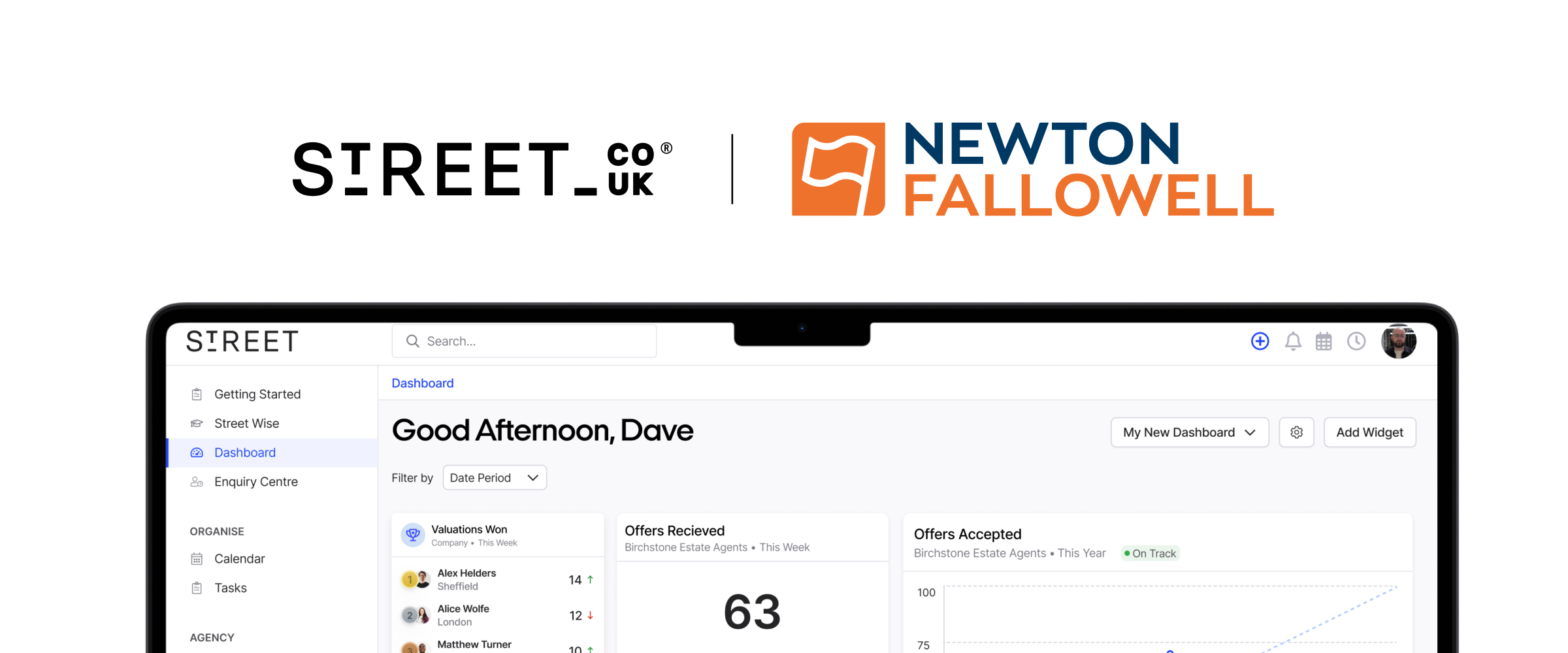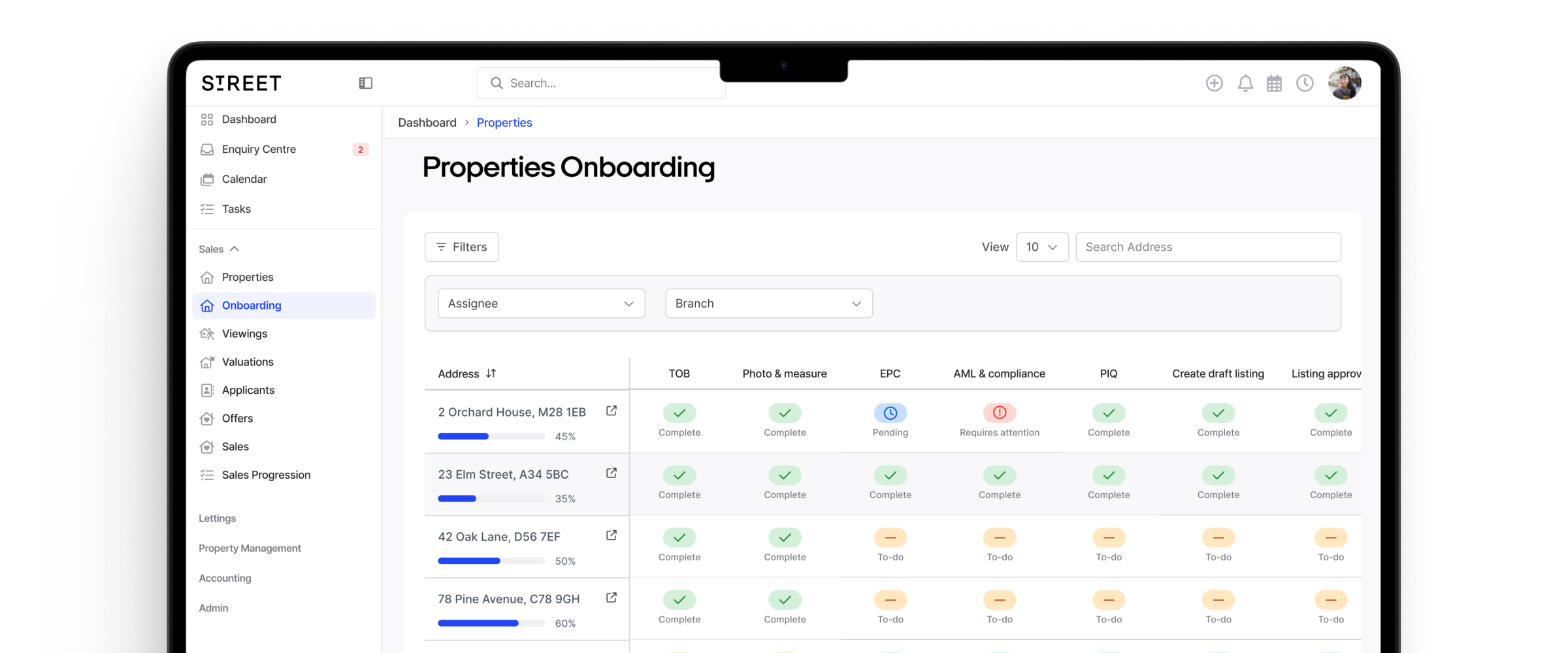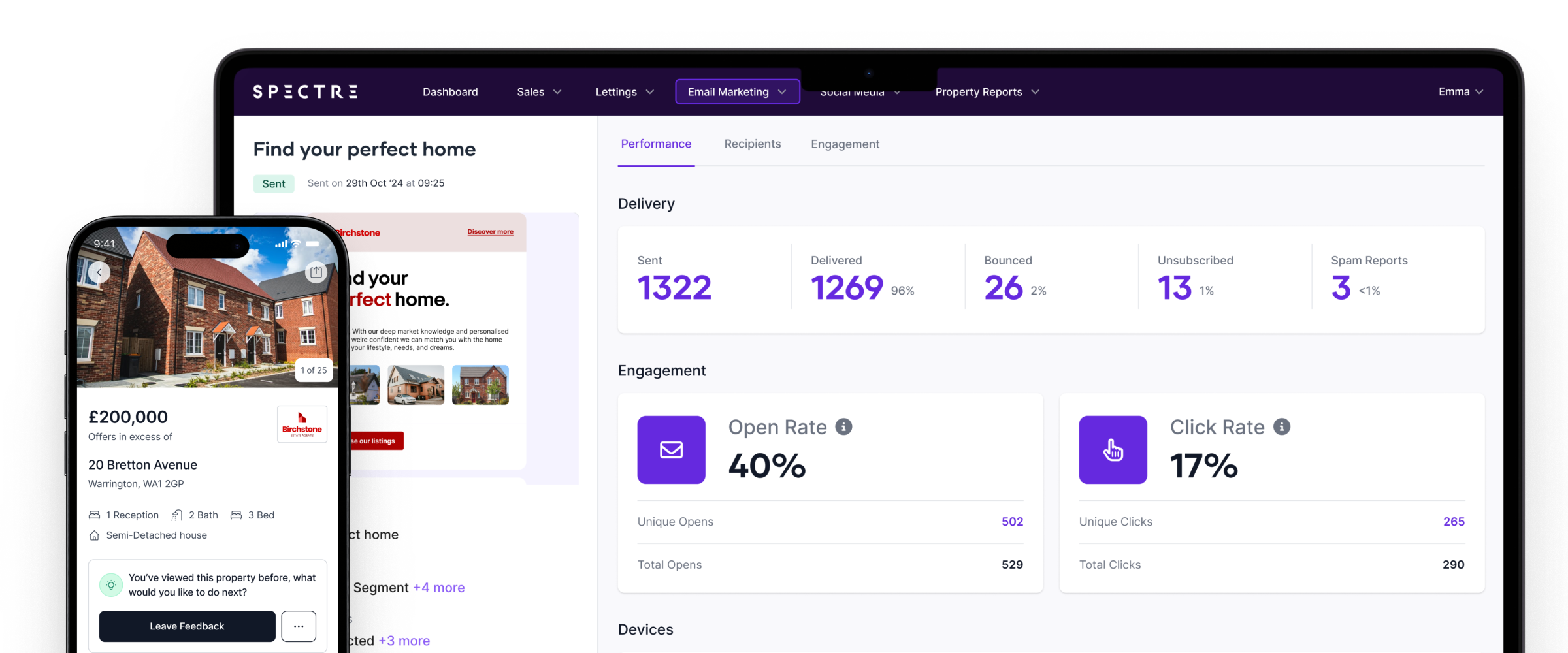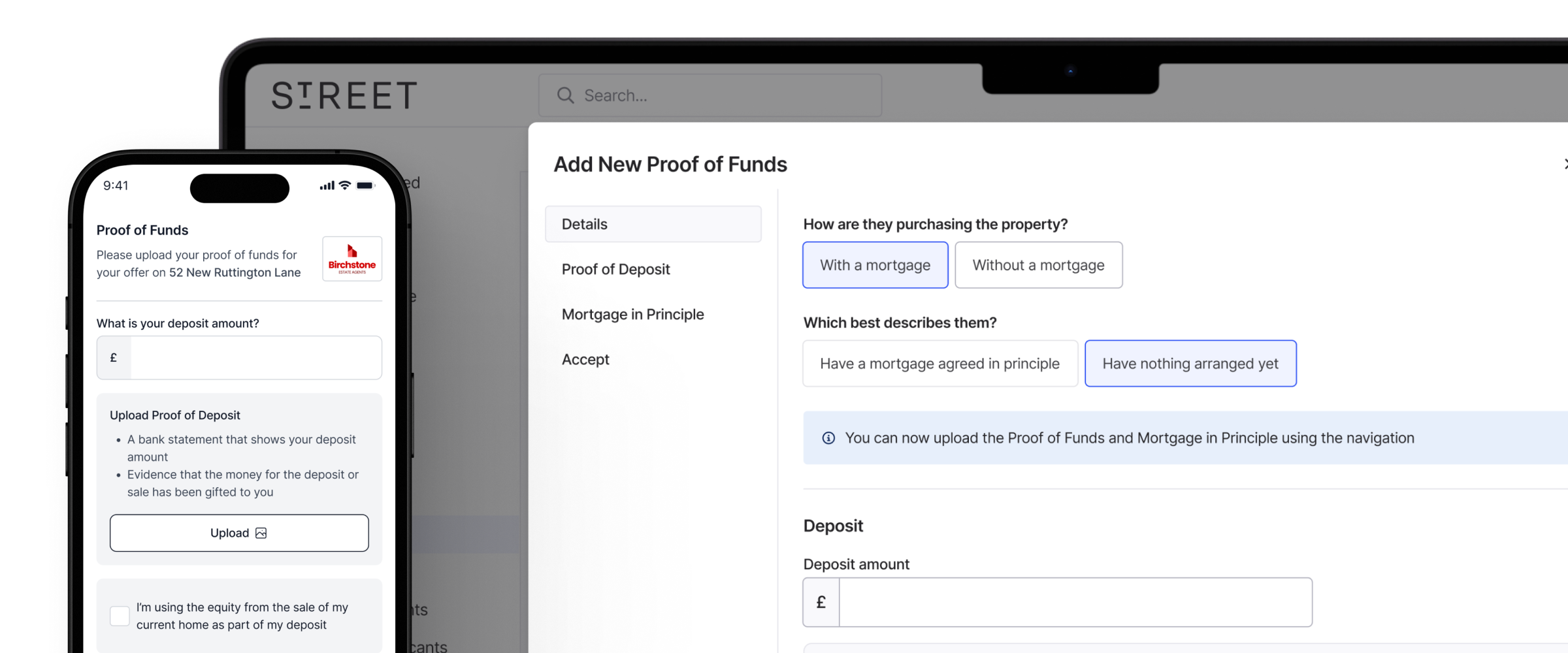Proptech and compliance: A conversation with Smart Compliance’s Amy Shields
Keeping up with the burden of ever-evolving regulations – without losing hours of valuable time per week – is a challenge for any estate agent. With this in mind, Street.co.uk spoke with Amy Shields from Smart Compliance about her thoughts on how proptech can assist with anti-money laundering (AML) compliance, the challenges agents face, and her top tips for staying ahead.
Q: Do you think proptech and compliance can work together?
A:
Absolutely – but with a big “but.” Technology and proptech solutions have significantly advanced in helping estate agents tackle anti-money laundering (AML) compliance. We now have tools like facial recognition, digital property ownership checks, and address verification.
However, human intervention is still essential, especially when it comes to enhanced due diligence. For example, in cases involving probate, power of attorney, or company sales, extra documentation is required to meet HMRC guidelines — something technology can’t fully handle yet.
That said, I’m optimistic that in the future, tech will bridge this gap. Tools like Street’s app, which speeds up basic ID checks, are great examples of how technology can streamline processes, leaving estate agents to focus on what they do best.
Q: What challenges are agents likely to face?
A:
Staying on top of ever-changing HMRC guidelines will be the biggest hurdle. The guidelines are already an 80-page document that’s confusing and often lacks clarity on specific scenarios.
Recently, for instance, legislation regarding Politically Exposed Persons (PEPs) changed. Estate agents now need to update their compliance policies and risk assessments to reflect these adjustments.
On top of that, new legislation is on the horizon — particularly in lettings. These changes will require agents to adapt their processes, as well as the technology they use, to stay compliant. It’s a constant challenge to ensure both human practices and digital tools keep pace with regulatory shifts.
Q: What is your number one tip for agents when it comes to compliance?
A:
Actually, I have two top tips!
- Streamline your processes:
Estate agents shouldn’t be bogged down with AML admin. Their focus should be on listing and selling houses, not compliance paperwork. Streamlined processes, supported by the right technology, can ensure agents spend less time on admin. For those who can, hiring compliance officers or administrators can be a game-changer.
- Monitor compliance costs:
Compliance can be expensive, so it’s vital to evaluate the cost and find ways to make it more efficient. Some companies even offer solutions that generate additional revenue streams instead of being purely cost centers. Finding such partnerships can be a smart financial move.
Q: Any final advice for agents navigating compliance?
A:
Yes, ensure your CRM integrates anti-money laundering tools. This integration can make compliance processes smoother and faster. Systems like Street’s CRM, which incorporates Smart Compliance and other solutions, set a great example.
At the end of the day, estate agents should focus on their core roles — listing and selling properties. The right technology can help them do just that while staying compliant in an increasingly regulated market.
Interested in streamlining your agency’s compliance processes? Let’s talk.








.png)















.png)
.jpg)







.jpg)
.png)
.png)
.png)
.jpg)



%20(1).png)
.jpeg)




.png)




.jpeg)



.jpeg)

.jpg)


.jpg)














.png)






.jpg)












